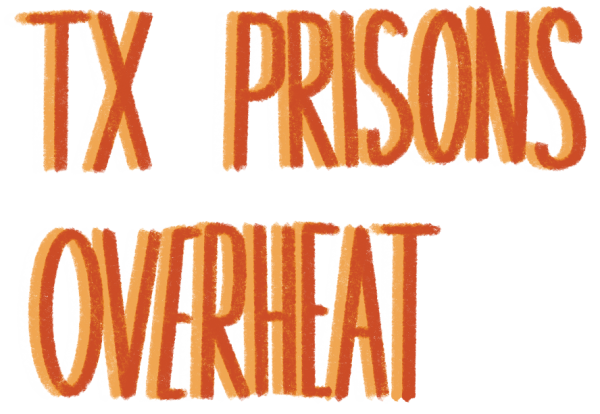Staff Stance: An Open Letter From Generation Z
February 24, 2021
When we were growing up, we often heard our parents recall the most important events of their lifetime. Specifically, they would remember where they were when a major traumatic event occurred. Where they were when Kennedy was killed or the 9/11 terrorist attacks happened was forever seared into their minds, the horror of those events not allowing them to forget. In an age where we are constantly bombarded by news of some horrific catastrophe or other, Generation Z does not have the luxury of remembering where we were; we simply do not have the mental capacity anymore.
Growing up in the 21st century, we can barely remember a time when we have not had access to an almost infinite world of information brought to our fingertips by smartphones, computers and other devices. Since we were in diapers, we have had the capability to receive the answer to any question in a matter of seconds; any resource we could dream of was presented to us with the push of a button. This luxury is an astounding success of the market and human ingenuity, but it has opened the door to the most pressing issues of our day. Political volatility and the spread of misinformation have forced intellectual maturity on children too young to understand the implications of their decisions. They have caused epidemics of mental health issues and have amplified generational trauma associated with major national and international events. From the Sandy Hook school shooting to the COVID-19 pandemic, the election of President Barack Obama to the election of President Donald Trump — Generation Z has had unprecedented access to information about national and global events.
Generation Z has seen a lot — and most of us have not even turned 18 yet. When many of us were still learning to read and some had not even been born yet, we saw one of America’s most devastating recessions in history, which caused millions to lose their jobs. In 2012, a man shot and killed 26 innocent people at Sandy Hook Elementary School, 20 of whom were elementary school-aged children. Earlier in the same year, Trayvon Martin, a black man, was fatally shot by George Zimmerman, acting as a catalyst for the rapid growth of the Black Lives Matter movement. In 2020, our lives were suspended due to the outbreak of a pandemic the likes of which have not been seen in America since the Spanish Flu. It is almost difficult to recount all of these generational traumas.
What makes these events so impactful on Generation Z’s psyche is not simply the nature of the events themselves, but their media coverage. The use of the internet has allowed outrage and fear to spread like wildfire, often before the integrity of the facts have been verified. According to Nielsen, 72% of Generation Z in America has access to all mobile wireless services, including voice, messaging, and data, with the vast majority of them using some form of social media. The algorithms used by social media companies such as Facebook, Twitter and TikTok to determine the content that its users see is often designed to create an echo chamber of confirmation bias, which often includes false or misleading information. This system only serves to bolster one’s own opinions and drives division between opposing factions on issues as trivial as sports and as serious as the foundations of democracy itself. The ability to reach millions of social media users with the push of a button has amplified the effects of national and generational traumas such as school shootings and political unrest. It is in the interest of both social media companies and traditional news media outlets to stoke fear and anger over these events in order to increase interaction with posts, rather than encouraging unity and cooperation. This practice has seared some of America’s most horrific events into the minds of young people for the rest of their lives and will be a defining part of growing up in an era of unprecedented access to information.
The effects of these events are not simply conceptual, but quantifiable. According to Western Governors University, only 45% of Generation Z reports being in good mental health, and a study by the National Institute of Mental Health found that 31.9% of adolescents suffer from an anxiety disorder, compared to only 19.1% of adults. Even with increased connection through the internet, a Cigna study found that nearly half of Americans report feeling a sense of loneliness, with Generation Z being the loneliest generation included in the study. Though there are many factors that contribute to these statistics, the trends suggest that the generations who have been exposed to traumatic events through the use of social media and the internet for their entire lives are dealing with more mental health issues.
All of this is not to say that we are the first or only generation to deal with adversity. Generations before us have grown up in difficult times, and generations after us surely will do the same. Our parents grew up bracing for nuclear war with the Soviet Union. Our grandparents lived through the Civil Rights era, one of the most tumultuous times in the nation’s history, and fought in the Vietnam War when they were barely out of high school. It is also important to note that, as Americans, we have grown up in one of the safest and most prosperous countries on the planet. The same cannot be said for children coming of age under authoritarian regimes such as China and Iran or in nations ravaged by poverty such as South Sudan and Haiti. When discussing such serious topics as mental health and generational trauma, it is important that we put things into perspective.
We should also remember the great things that have happened during our lifetime. Before the COVID-19 pandemic, unemployment had reached record lows, especially within minority communities. The United States has, for over a decade, consistently lowered its carbon emissions. We elected our first black president, a historic occasion regardless of one’s opinions on his performance as President. The nation came together, across partisan lines, to unequivocally condemn the vicious attack on our Capitol on Jan. 6, 2021. When all seems bleak, it is imperative that we unite as a nation behind what makes our country great and remember that we, as a generation, are in this together.
The rise of social media coupled with the unprecedented political polarization and volatility in America today are serious concerns for the future of Generation Z. The events that shaped our childhood have impacted our mental health and our outlook on the country’s situation. If we cannot overcome this challenge, our generation and our country will be forever fractured, but there is hope. We have seen the generations that came before us overcome some of the most troubling issues of their time. We, as a generation, have more in common than not. We have the ability to look past the noise and distraction generated online to come together and take on the challenges of our time. We must unite to overcome them, or else let them destroy us.







